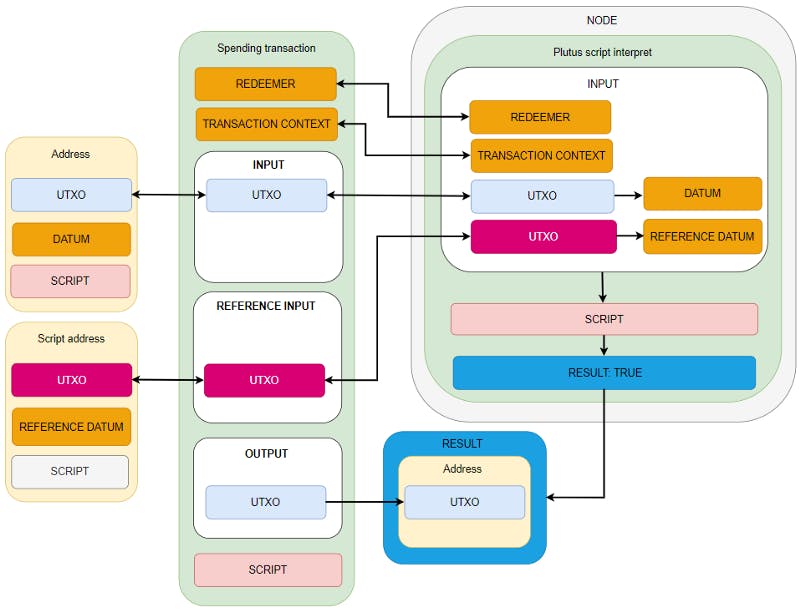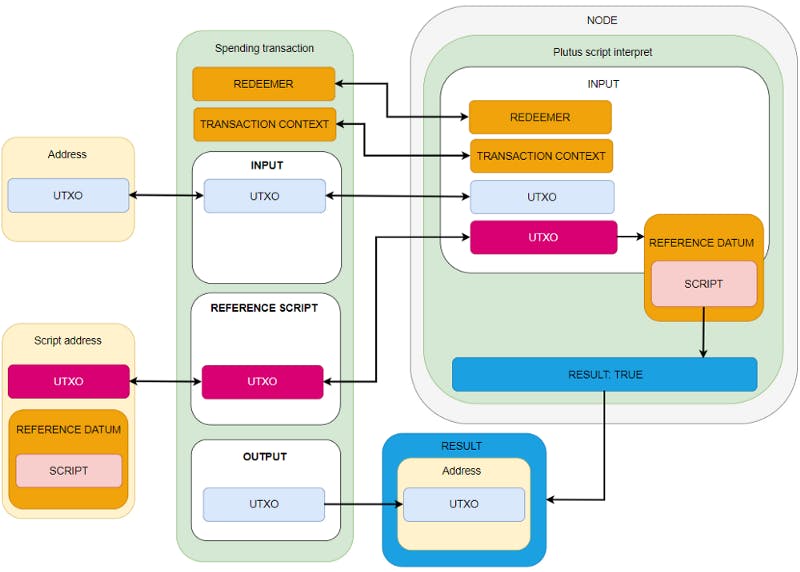Last time we covered some key details of Cardano’s VASIL Hard Fork. This time we have some more. Hopefully, it doesn’t get too complicated. If it does ask for clarification in the comment section.
CIP-31
Cardano Improvement Proposal 31 (CIP-31) allows for a new type of input to transactions: reference inputs. These reference scripts will hold information on the output of a transaction without spending that transaction.
Currently, if a Cardano dApp developer wants to access the outputs of a transaction (to which address does the ADA go and how much is sent and left over), the UTXO must be spent and then recreated. This wastes time (since dApps will have to wait for the next block to recreate the UTXO) and incurs more transaction fees. CIP-31 will greatly improve the efficiency of dApps by allowing them to access more information without paying an extra fee. Ultimately, VASIL will allow transactions with reference inputs to be put on the blockchain for one transaction fee and then that information will be available to all for no extra cost.

CIP-31 Transaction: note the addition of useful reference datum, yet there is only one spent UTXO
CIP-33
CIP-33 allows outputs of a transaction to have another editable field: reference scripts. Previously, if a smart contract wanted to use a script in a transaction, it would need to contain the entire script. This makes the size of transaction data larger and incurs greater gas fees for users and dApp developers. With CIP-33, a transactions reference script field will contain a short address that points to the location of the script on the blockchain. So, multiple transactions can use the same script by just referencing it instead having to rewrite the script in every transaction, so any common scripts can become reusable across the blockchain.

CIP-40
This improvement proposal is pretty simple. CIP-40 is meant to protect dApp developers from losing extra funds if they make a mistake while building applications. Transactions using smart contracts require some collateral of ADA to cover the costs of contracts failing, but developers can put more than the minimum amount. CIP-40 gives the extra ADA back if a contract fails and the developer had put more than the minimum amount of collateral. This prevents developers from experiencing unnecessary losses of ADA.
As you can probably tell, the VASIL hard fork brings many intuitive changes to the Cardano blockchain — improving its speed and usability without compromising on security. Even though the Cardano blockchain is already much more efficient compared to others (like Ethereum and Bitcoin), the future entails many more Cardano users, which can overload the blockchain. To counter this, Cardano needs more hard forks like VASIL (which are planned to occur in the Basho era).
If you enjoyed reading this, consider following. It helps a lot!
